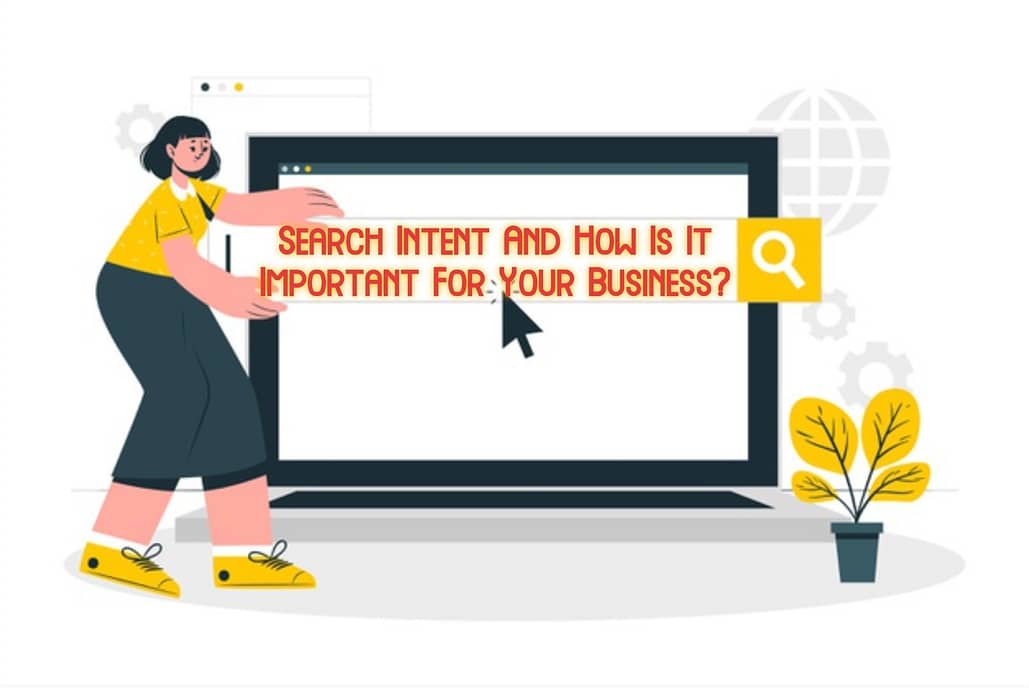Search Intent And How Is It Important For Your Business?
Search engine optimization is an approach to get more traffic to your site. By ranking high in Google, you draw in more individuals to your site. At last, your objective presumably is to sell your stuff or to draw in more visitors. To get more traffic to your site, you promote your content for words individuals use. Nonetheless, to build your odds to rank and truly reach individuals to purchase your stuff, subscribe to your pamphlet, or return to your site some other time, you should consider search intent. Here, this article will mention what search intent is and how to take advantage of search intent?
What Is Search Intent?
Search intent is the term used to tell the “why” behind an online search. It’s the reason why somebody leads a particular search. Every individual who does an online search is wanting to discover something. For example, someone wants to learn something like a burger recipe, and someone wants to buy something like a bag. Websites that have content that satisfies search intent rank better on search engines.
Types of Search Intent
There are four types of search intents:
- Informational Search Intent
As the name suggests, people who search under informational search intent are looking for information. These are more generic. People can search for information about national holidays, weather, recipes, etc. People who search for information have a specific topic.
Examples:
How to make tomato ketchup
Smart SEO ideas for small business
- Navigational Search Intent
The second kind of search intent is called navigational intent. Individuals searching under this intent want to visit a particular site. For instance, individuals who search for [Instagram] are normally headed to the Instagram site.
Remember that ranking high for a navigational intent is valuable for your organic traffic if your site is the site individuals are searching for.
Examples:
Twitter login
LinkedIn login
- Transactional Search Intent
The third kind of search intent is transactional search intent. Many individuals purchase stuff on the web and use the web to track down the best purchase. Individuals are searching with transactional intent when they want to buy something.
Examples:
Buy office table
Kitchen knife online
- Commercial Search Intent
Some people, before purchasing, like to investigate first. People who search under commercial search intent look for products and their comparisons to make a decision.
Examples:
Best travel bags 2021
SEO tools review
At the point when you have a strong understanding of these four primary kinds of search intent, it’s simpler to make content that is focused on the particular requirements of the searcher performing them.
Why Is Search Intent Important?
Before knowing how to take advantage of search intent, you should be aware of the benefits first. Businesses utilizing SEO need their pages to appear first for specific search terms. Optimizing site pages is significant, yet except if your intended interest group is looking for that content, at that point, all your effort goes unnoticed.
However, by understanding which search terms, your crowd is using, and how this lines up with search intent, you can make content that places you before potential buyers at all phases of the purchasing cycle.

Regardless of where clients are in their search journey, your content appears in search results since it most precisely answers their search inquiries.
How To Optimize Your Website For Search Intent?
Search Intent best practices include:
- Create An Eye-Catching Title
Topping the Search Engine Result Pages is an absolute dream for some, yet it transforms into a bad plan if you top the SERP however fails to boost your CTR.
Create a clickable title by including the keyword. Ensure that your title shows that you comprehend the search intent behind that keyword.
Notice the titles of the rankings URLs and make however many titles as your creative side permits. At that point, pick the one that lines up with your theme and brand voice the best.
- Keyword Research With Clear Search Intent
Keyword research is a grounded step in SEO – yet a typical mistake is for businesses to focus on high-traffic, exceptionally highly competitive keywords under the confusion that more organic traffic equals to more business.
More terrible yet, ranking for these keywords amounts to nothing if the page’s content doesn’t coordinate with what individuals really need.
SEO should focus on separating and focusing on keywords that match with the current content on your webpage and that are exact, fair, and have an unmistakable search intent.
- Do Not Bore The Visitors
Answering the inquiries right in the beginning increases your chances of getting picked by the SERP features. If you analyze the People Also Ask section on Google search results, you will know that the top sites answer the query right away and get more clicks, leads, and engagement.
When you answer the inquires without boring the use, it grabs users’ attention and makes them believe that they’re at the right place.
- Create Meta Data
Meta title tags and meta descriptions are what search engines use to show pages in the search results, and they’re what searchers read when attempting to choose what to tap on. The significant step here is to write transparent, fair, and exact metadata that incorporates your objective keywords.
- Analyze The Competition
One of the search intent best practices is to get inspiration from the competition. It would be best if you made an effort to analyze the content which tops the search result pages for your main concerned keywords and topics. This will assist you with canning a more profound understanding of how search engines have decided to plan and why they’ve recognized your competition (backhanded or direct) as the best match for people’s search intent.
Conclusion
It’s essential to guarantee that the content you’re creating fits both the terms individuals are searching for, just as your crowd’s search intent. Ensure your post or page is instructive when individuals are looking for information. However, lead individuals to your business pages if they are hoping to get one of your products.



